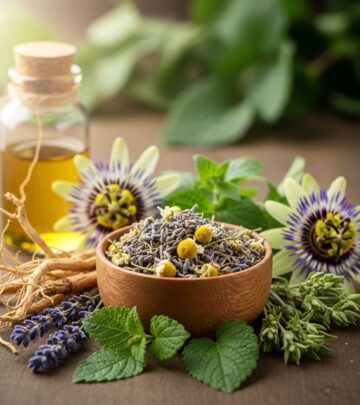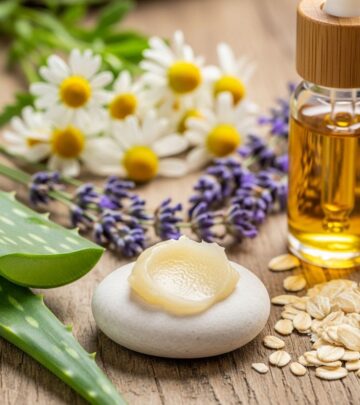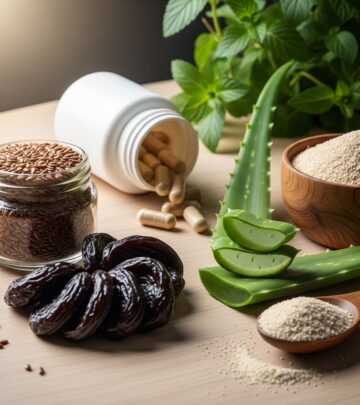Comprehensive Approaches to COPD Treatment and Natural Remedies
Explore holistic and conventional methods for managing Chronic Obstructive Pulmonary Disease, including home remedies and supportive therapies.

Chronic Obstructive Pulmonary Disease (COPD): Treatment Approaches and Natural Remedies
Chronic Obstructive Pulmonary Disease (COPD) is a progressive lung disorder that impairs airflow and breathing ability. Characterized by symptoms such as chronic cough, increased sputum production, and breathlessness, COPD often results from long-term exposure to irritants like tobacco smoke, environmental pollutants, and occupational hazards. Effective management focuses on relieving symptoms, slowing disease progression, and improving quality of life through medical therapies, lifestyle changes, and holistic or natural remedies.
Understanding COPD
COPD encompasses two main conditions—chronic bronchitis and emphysema. Over time, persistent inflammation narrows the airways and destroys the lung’s delicate air sacs, reducing the lungs’ efficiency in exchanging oxygen and carbon dioxide. While there is no cure, many treatments can help manage symptoms and complications, enabling patients to enjoy more fulfilling lives.
Common Causes and Risk Factors
- Cigarette smoking: The most significant risk factor for developing COPD.
- Long-term exposure to air pollution, chemical fumes, and dust.
- Genetic factors: Such as alpha-1 antitrypsin deficiency.
- Age: Risk increases with age due to accumulated exposure and natural aging of lung tissue.
Medical Treatments for COPD
Medical interventions aim to relieve symptoms, reduce the frequency and severity of exacerbations, and increase overall exercise tolerance. Treatment plans are tailored to individual needs and severity.
1. Bronchodilators
Bronchodilators are the mainstay of COPD management. These medications relax the airway muscles, making it easier to breathe. They are delivered via inhalers or nebulizers and come in two types:
- Short-acting bronchodilators: Used for quick relief of acute symptoms.
- Long-acting bronchodilators: Used daily to control persistent symptoms.
2. Inhaled Corticosteroids
For patients with frequent flare-ups, inhaled corticosteroids may be added to reduce airway inflammation and prevent exacerbations.
3. Combination Inhalers
Some patients benefit from combination inhalers containing both bronchodilators and corticosteroids, streamlining therapy and enhancing effectiveness.
4. Phosphodiesterase-4 Inhibitors
These oral medications are prescribed to reduce inflammation and relax airways in severe COPD cases with chronic bronchitis symptoms.
5. Oxygen Therapy
For those with advanced COPD and low oxygen levels, supplemental oxygen can improve survival, exercise capacity, and sleep quality.
6. Pulmonary Rehabilitation
This comprehensive intervention combines education, exercise training, nutrition advice, and psychological support to enhance physical and emotional well-being.
7. Surgery
- Bullectomy: Removal of large air spaces (bullae) in the lungs that interfere with breathing.
- Lung volume reduction surgery: Removing diseased portions of the lung to allow healthier tissue to function better.
- Lung transplant: Reserved for select patients with end-stage disease.
Home and Natural Remedies for COPD
Many patients seek natural or complementary approaches to supplement conventional COPD treatments. While such remedies do not replace prescribed medications, they may offer symptom relief, reduce exacerbations, support respiratory function, and improve quality of life.
1. Apple Cider Vinegar (ACV)
Some anecdotal reports suggest that diluted apple cider vinegar may help break down mucus and soothe the throat. Suggested daily intake ranges from 1 to 2 tablespoons in a glass of water, drunk once or twice per day. It is important to consult with a healthcare provider before starting ACV to avoid gastrointestinal discomfort or interaction with medications.
2. Hydrogen Peroxide Therapy (3% Standard Solution)
The use of diluted hydrogen peroxide (3%) as an inhalant, or added to a nebulizer to break up lung congestion, is discussed anecdotally. This approach is controversial, lacks robust clinical evidence, and carries safety risks. Medical guidance is essential before considering this method.
3. Oil Pulling
Oil pulling involves swishing edible oil (commonly sesame or coconut) in the mouth to potentially remove toxins and reduce inflammation in the oral cavity. While a traditional practice for oral hygiene, any benefits for COPD are based on limited anecdotal evidence.
4. Turmeric and Curcumin
Turmeric, rich in curcumin, is valued for its anti-inflammatory and antioxidant properties. It may help modulate inflammatory pathways contributing to COPD progression. Turmeric can be added to food or taken as capsules, but those with bleeding disorders or on blood thinners should seek medical advice before supplementing.
5. Breathing Exercises
Improving breathing efficiency is key to managing COPD. Techniques include:
- Pursed-lip breathing: Slows exhalation and helps keep airways open.
- Diaphragmatic breathing: Strengthens the diaphragm for deeper, more effective breaths.
6. Diet and Nutrition
Anti-inflammatory diets enriched with fruits, vegetables, lean proteins, and healthy fats support overall health. Foods high in omega-3 fatty acids (such as fish, flaxseed, and walnuts) may help modulate inflammation. Patients should avoid gas-producing foods that may worsen bloating and discomfort.
7. Herbs and Supplements
- Mullein: Traditionally used to soothe the respiratory tract and reduce congestion.
- Lobelia: Purported to help clear mucus and ease breathing, but high doses may be toxic.
- Ginger: Renowned for its anti-inflammatory and expectorant properties.
- Magnesium: Crucial mineral for lung function; supplementation should be discussed with a physician.
8. Honey
Honey’s soothing effect on the throat and mild antimicrobial properties may help relieve coughing episodes.
Lifestyle Strategies for Managing COPD
An effective COPD management plan includes lifestyle modifications that can dramatically affect the trajectory and symptoms of the disease.
- Quit Smoking: The most impactful intervention. Even late-stage quitters see benefits.
- Avoid Pollutants: Both indoor (cleaners, fumes, dust) and outdoor (vehicle emissions) irritants should be limited.
- Regular Exercise: Within physician-approved limits, physical activity builds stamina, enhances mood, and maintains muscle strength.
- Vaccinations: Influenza and pneumococcal vaccines are crucial to prevent respiratory infections.
- Practice Good Hygiene: Frequent handwashing and avoidance of sick contacts reduce infection risk.
Supportive Therapies
Various supportive therapies can enhance the effectiveness of medications and home remedies.
- Chest Physiotherapy: Professional or self-taught techniques to help clear lung secretions.
- Humidifiers: Maintain indoor air humidity, which can relieve dryness and ease breathing.
- Emotional and Psychological Support: COPD is often linked with anxiety and depression; support groups and counseling can offer vital emotional health support.
Prevention and Exacerbation Management
Preventing exacerbations (flare-ups) is essential for maintaining quality of life in COPD. Common triggers include respiratory infections, environmental changes, and lapses in medication adherence. Promptly recognizing and managing exacerbations reduces the risk of hospitalization and accelerates recovery.
Exacerbation Warning Signs
- Sudden increase in shortness of breath
- Change in sputum color or volume
- Persistent or worsening cough
- Development of fever or chills
Individuals experiencing these symptoms should contact their healthcare provider promptly for evaluation and management.
Table: Summary of COPD Remedies and Their Purported Benefits
| Remedy or Therapy | Purported Benefit | Evidence Level |
|---|---|---|
| Bronchodilators | Opens airways, relieves symptoms | High |
| Inhaled Corticosteroids | Reduces airway inflammation | High |
| Oxygen Therapy | Corrects low blood oxygen | High |
| Pulmonary Rehabilitation | Improves function, stamina | High |
| Apple Cider Vinegar | Breaks up mucus (anecdotal) | Low |
| Hydrogen Peroxide (3%) | Potentially breaks congestion (controversial) | Low; not recommended without medical supervision |
| Oil Pulling | Reduces oral inflammation; oral hygiene | Low |
| Turmeric / Curcumin | Reduces inflammation | Emerging/laboratory evidence |
| Breathing Exercises | Improves breathing efficiency | Moderate |
Frequently Asked Questions (FAQ)
What is the most important step I can take if I am newly diagnosed with COPD?
Quitting smoking is the single most effective way to slow disease progression, regardless of current disease stage.
Are natural remedies safe for COPD?
Natural remedies can provide symptomatic relief but should not replace medical therapies. Discuss any new supplement or remedy with your healthcare provider, as some may interact with COPD medications or have side effects.
Can diet influence COPD progression?
A balanced, anti-inflammatory diet rich in fruits, vegetables, lean protein, and healthy fats supports immune function and lung health. Avoid excessive processed foods, sugars, and foods that contribute to bloating or discomfort.
Which breathing techniques help with COPD?
Pursed-lip breathing and diaphragmatic breathing are simple techniques shown to improve oxygen exchange, reduce shortness of breath, and increase exercise tolerance. Practice these techniques daily for best results.
Is hydrogen peroxide therapy recommended for COPD?
Hydrogen peroxide inhalation remains controversial and is not broadly recommended by mainstream medical organizations due to safety concerns and lack of strong clinical evidence.
How can I reduce the risk of COPD flare-ups?
Adherence to medications, avoidance of smoking and pollutants, timely vaccinations, regular exercise, and prompt treatment of infections are all effective strategies to minimize exacerbations.
Does emotional health affect COPD?
Yes. Anxiety, depression, and social isolation are common among COPD patients and can worsen symptoms and quality of life. Support groups, counseling, and open communication with your healthcare team are highly beneficial.
Resources and Support
Education and community support play pivotal roles in COPD management. Reputable organizations provide information, practical tips, and community connections:
- American Lung Association
- Global Initiative for Chronic Obstructive Lung Disease (GOLD)
- Local pulmonary rehabilitation programs
Always consult your healthcare provider before beginning any new treatment or supplement, especially for chronic or serious illnesses like COPD. Integrating conventional care with evidence-based natural approaches offers the best opportunity for improved breathing, enhanced activity, and higher quality of life.
References
- https://marketbrew.ai/optimization-guide/health-websites-seo
- https://pmc.ncbi.nlm.nih.gov/articles/PMC9557955/
- https://www.wheelhousedmg.com/insights/articles/the-ultimate-guide-to-healthcare-seo/
- https://www.bynder.com/en/blog/12-tips-for-writing-seo-optimized-content/
- https://www.siegemedia.com/seo/healthcare-seo
- https://kyruushealth.com/generative-engine-optimization-data-superpower/
- https://healthcaresuccess.com/blog/healthcare-marketing/healthcare-seo-guide.html
Read full bio of medha deb












